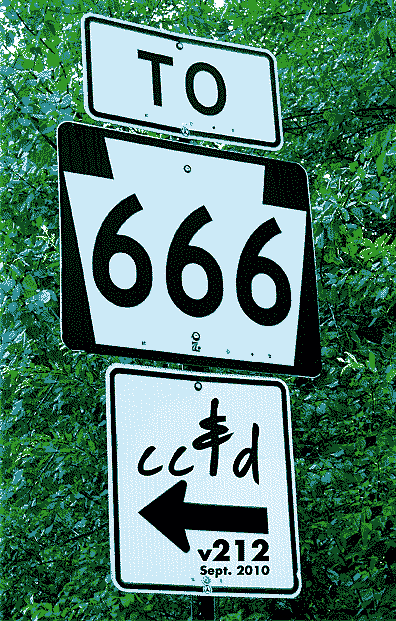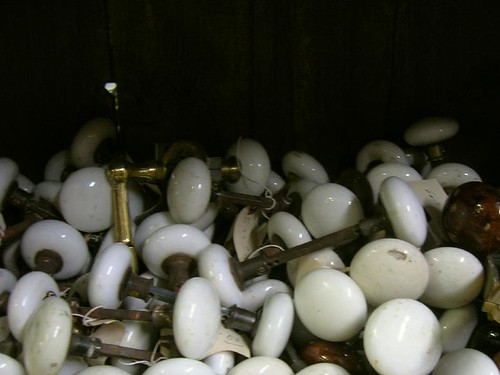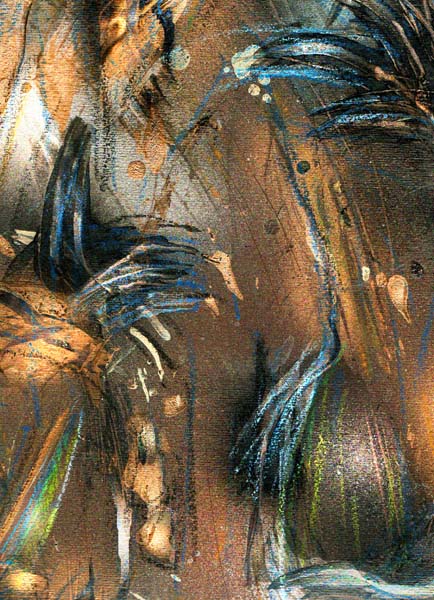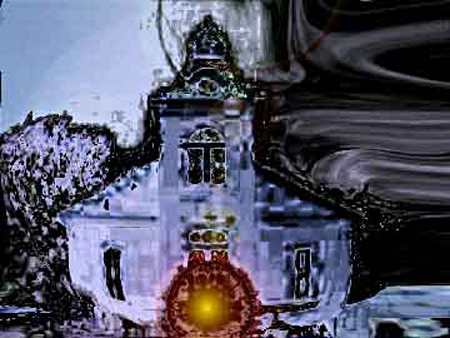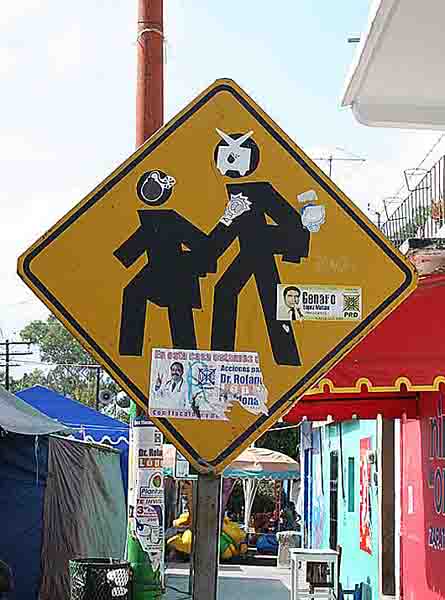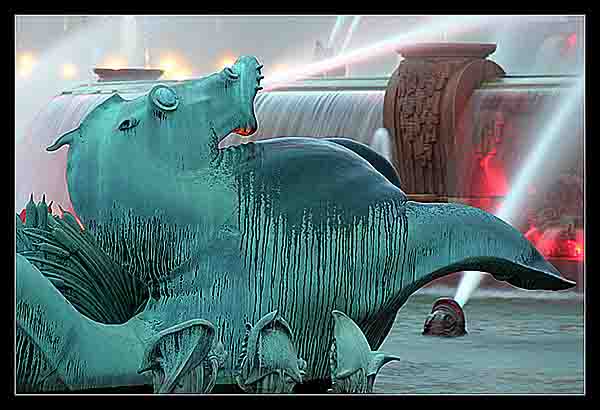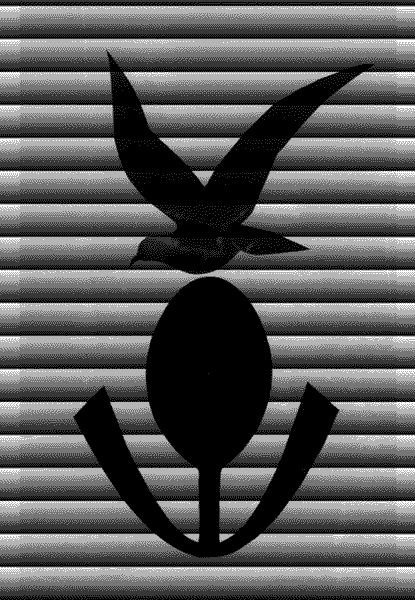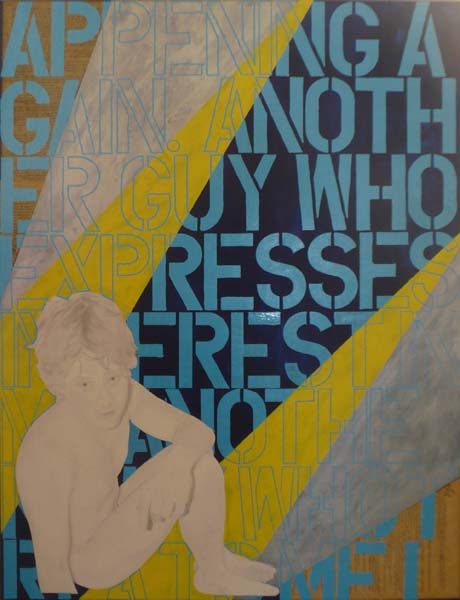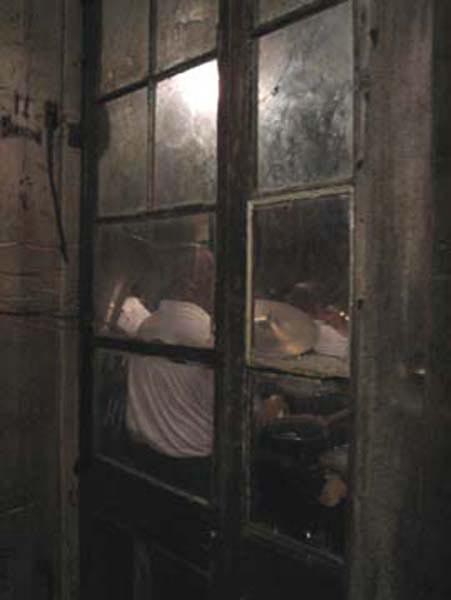Union of the Snake
Jason Marc Harris
When I heard from my old friend Paulo that he was finishing his graduate studies at the University of Central Florida in anthropology and that he would like me to accompany him to observe the folkloric practices of an almost unknown tribe in the Everglades . . . I was interested, to say the least! I drove down alone to Homestead, FL, which was where I’d agreed to meet Paulo before heading to Flamingo and then deeper into the swamps.
Paulo showed up at the Subway shop in Homestead wearing one of his in-your-face political shirts: a Native American warrior brandishing a spear and a scowl beneath an American flag with a pile of skulls on top of it. The words, “our country,” stood out in dark red blood-dripping letters beneath the flag. Paulo’s smiling chiseled face was a cheery movie-star contrast to the totem of political activism he brandished on that shirt.
“Glad to see you’re still militant,” I grinned and shook hands with Paulo.
After some small talk, Paulo gave me the lowdown about the trip.
“This trip isn’t just for the fun of gathering stories from old timers. There’s some adoption issues I’ll have to deal with while we’re there. Some complaints got made somewhere about disappearing kids. I’m sure it’s just some miscommunication. Also, there’s an environmental dispute. It’s bizarre: this tribe doesn’t want the pythons that have been overrunning the Everglades to be removed.”
“Why not?”
“Religious values.”
“This tribe is a real reclusive bunch,” Paulo continued. “They haven’t been in touch with the modern world much at all. We’re talking no cell phone coverage, no running water, no awareness of political events beyond what affects them locally.”
The sun was blazing hot by the time we entered the boundaries of the national park. I looked out at the waterlogged grasslands sprawling on the left side of the car but coming up around the bend was a section of somewhat firmer prairie—pine trees were sprouting in bristly clumps. And a swamp buggy was waiting with a National Park emblem on it. I know the Park Service blabs on about how those are bad to use for the environment, but they let us use it to get over a mucky section of land that brought us to a dock where there was a canoe waiting for us and a Native American guy who was fishing. He was a Miccosukkee and explained he did some boat maintenance for the Park Service. He looked real nervous when we talked about the Chazga-whatchamacallits and muttered something about “bad blood.”
Paddling in that dirty bronze water was almost refreshing: scooping up that brown thick stream like a spoon in some thick soup and feathering that paddle deftly—feeling like a pro or one of the natives—before reaching out for another deep stroke. Even though it wasn’t hot by Florida standards, I was sweating. The cotton shirt sticking to my back felt like a wet balloon that partly inflated with every movement I made with the paddle. The air grew heavier with a sulphurous stench as we plunged deeper into the mangroves.
There were a few startling moments on the trip, such as seeing a cottonmouth swimming along the shore, and then later a terrific splash announced the launching of several alligators into the water as we paddled by.
“Damn, Paulo, you don’t think they’ll ram the boat do you?” I gripped my paddle in readiness, prepared to smash the hard wood down on the nose of any nasty green snout that dared come rising up next to the boat.
“I’ve heard about that in mating season, which it is, but looks like they’re just going about their business. Just like us. Cruising along, not a care in the world. Harmony of nature, Clay, no worries.”
“You really believe in all that, huh?”
Paulo paused to raise his paddle with his right arm, and as he let it hang on the edge of the canoe, he patted his left hip with his left hand and pulled up his shirt to reveal the bottom of a sizable pistol.
“Sure do, and if things don’t get quite as harmonious as they should be, there’s the equalizer, baby.”
The next day as I paced outside the tent and snacked on one of the several power bars I had brought along, a stocky bald man with a goatee came slouching over towards us. His face was burned a rather comical shade of orange, that made him look like a tough pumpkin. I’ve noticed a lot of people in Florida have this odd orangish skin, maybe from some combination of sun damage and fake tan sprays, but this guy’s facial problems went to a whole other level. With each step he took, a new wrinkly ridge, fold, or pockmark caught the light of the morning sun.
Behind him about fifty feet back near the shore of the swamp by a camouflage-painted canoe stood what I suppose was his wife and child: a red-haired chubby woman who was both sunburned and angry-looking. The kid looked maybe three-months old.
“What’s up, brother?” He nodded his head as Paulo raised his eyebrows skeptically at the tough guy’s rattlesnake tattoos on his arms, which were prominently displayed because of the dirty sleeveless white t-shirt he wore.
“What’s up yourself? We’re on a trip.”
“Oh yeah man, we’re all on a trip. You here for the festival?”
“What do you know about that?” Paulo asked.
“Hey man, I’ve been coming to this Indian powwow for five years. I just wondered if you guys wanted to buy some decent herb.”
“No, that’s ok,” I said, wishing the guy would get out of my face.
“The Chazgas have some damn powerful shrooms. Some German doctor did studies on it. It can tear you up good. They like mixing it with the mary jane that I bring them. It’s one groovy festival let me tell you.”
“You’ve been staying at the village? Have you met a guy named Ezekiel Palataka?” Paulo asked. A mutual friend of Ezekiel and Paulo had been the one to let Paulo know that this weird festival in this remote village even existed. Ezekiel supposedly came back from the village once to visit Orlando, and then disappeared again.
“Yeah, I know Zeke. You’ll probably see him tonight at the mound dance.”
The paddling we did following this guy took us through some spots I would have thought were impassable, but our canoes slid right through the thick grass beneath the overhanging mangroves. My shirt was already stuck to my back with sweat, and my shoulders burned and ached from the renewal of paddling again, but finally we came to a virtual cavern of the twisted trees and ran aground.
After securing our boats, we followed Mr. Cheerful out through a muddy path that emerged in glorious daylight, and we saw the junky settlement that apparently qualified as a village. It was a combination of a restaurant I ate at once on an Indian reservation near Death Valley and a bunch of rejects from the Burning Man festival: you know, that bunch of performance-artist freaks and merchants who gather out in the Nevada desert once a year. Mr. Cheerful was just one of a few dozen leftovers from Mad Max or some other cheesy post-apocalyptic B-movie. The smell of cured meats, tobacco, and some sweet-and-sour odor wafted in the air—perhaps the famous shrooms?
I was glad to get away from Mr. Cheerful and the wacked-out white folks I saw lazing around and go to meet the mysterious tribesmen who were sitting out in the sun, soaking up some rays and smoking something or other in their pipes, as though they weren’t perpetually suntanned and stoned enough. “In-breeding” was the first thought that leapt to mind. Abnormally high foreheads and bony browridges seemed to be a requirement here. And such strange sunken eyes staring out of sun-damaged sockets. None of them seemed to blink.
All the people past about thirteen in this tribe had rough markings on their skin. Only parts of their arms and throats were visible beneath the loose-fitting, green-and-white clothes they wore, but I could see what looked like a row of dull red and black raised hard blisters formed into some pattern.
I whispered to Paulo, “What do these people do to each other, branding maybe?”
“Beats me Clay, maybe we’ll find out tonight.”
“At ye old mound dance huh?”
It turned out that there wasn’t too much to see in the village after all. Well, there were the junk-art sculptures of snakes and alligators, the drum circle where the white-trash druggies were swaying, and the alligator-wrestling arena, which was just an area of straw-covered dirt with a ring of tires around it. A muscular cracker-jack with a cowboy hat was drinking out of a vodka bottle and watching a couple of natives taking turns wrapping their arms around an alligator’s closed snout. The alligator seemed rather bored with the whole situation until suddenly it whipped its tail and raised a nasty welt on one of the native’s cheeks. The cracker-jack let out a loud “har!” Nobody was selling any hotdogs, popcorn, or alligator jerky, but it felt like somebody should be. The whole so-called village had all the class of an amateurish carnival in some back alley.
We walked in front of a hut that had red handkerchiefs tied to the posts that poked from the top of the roof. There was a porch of sorts: a raised platform over some lumpy logs that were set down deep in the earth.
“Looks like it’s the women’s retreat,” Paulo whispered.
Two men stood outside. There was nothing remarkable about them in their faded khaki shirts except that they were holding staffs with serpent-carvings. No doubt the staffs had some ceremonial function, and the patterns were actually pretty interesting: I recognized the diamond-back rattlesnake pattern on one staff, and it looked like some constrictor-type snake on the other because it was wrapped around what looked like a rather unhappy pig. I pointed at the staff with the constrictor-snake design and nudged Paulo.
“9000 psi, Paulo.”
“What’s that?”
“9000 pounds per square inch is how strong an anaconda squeezes.”
“If they play reptile trivial pursuit at the mound dance, you might be the winner Clay.”
I was about to come up with some brilliant retort, but as we passed directly in front of the entrance, my attention shifted to the glimpse I got of the interior. The door was ajar, and a rise in the breeze blew the door more fully open.
We both paused to stare inside the place.
I saw a fat old woman sitting on a chair in the middle of the room. She glared vaguely ahead while a middle-aged tall thin woman stood over what looked like a cradle between them. The thin woman had small hard eyes, and her bronzed face stretched into a series of cracks, and grinned as I peeked at them. Her throat had some of those dark blistered marks that other members of the tribe sported. Mr. Cheerful’s wife was inside there talking excitedly to the two women while Mr. Cheerful himself was counting money in his thick sun-cracked fingers outside the door in a corner of the porch.
The guards closed the doors to the building when I guess we had paused too long. One of them spoke in their language to Paulo, who nodded and replied in a way that the fellow seemed to accept because he smiled, then he laughed and said something that also made Paulo laugh. The husband didn’t even look up to acknowledge us. He was studying the bills like he was reading the future or studying the secrets of all creation.
Paulo and I walked on.
“That’s where the Chief’s daughters live, Clay, so no poking around like our crackerjack guide said earlier.”
“And what exactly is going on there anyway, huh?”
“It’s a retreat for the women like I said. Men aren’t supposed to go in.”
“Yeah, I get that, but where were the teen girls who are coming of age?”
Paulo hunched down and raised his hands dramatically, whispering, “I don’t know, Clay, maybe they’re kept in the dungeon till they have their first period? Maybe the old women feed them the flesh of gringos first.” Paulo grinned at me mischievously.
“Well, I’m not too excited about the female prospects here, I gotta say.”
“You may be right about that, that guy back there said the younger sister is too skinny and the older one is too fat, but if they were put together they’d be just right.”
“If those were the sisters, they’re both way too old,” I replied.
After passing several other awfully uncomfortable-looking decrepit huts—messes of splintery wood and aluminum—we came to a wide squat building.
“That’s the lodge, Clay. I’ll introduce you, but then I’ll need to get busy with this whole mediation thing.”
There were two more guards here, and they had the same style of staff. Unlike the previous guards, they chose to speak English.
“Go right in. Chief Ungriluzu is meeting with the elders.”
We entered the lodge and came into a room filled with rows of books, a library, though a small one. There was a curtain hanging down and from behind it we heard the chatter of the tribe meeting. I followed behind Paulo who bowed to the chunky grey-haired man in a flamingo-print shirt, Chief Ungriluzu. He rose from his thick oak chair and raised his hands.
“Ah Paulo, hello to Paulo and his friend. I would introduce you to my two daughters, but they are in the time of renewal.” The tribe elders smiled and laughed, exclaiming “hello Paulo! Hello friend!”
“This is Clay, from the university,” Paulo said, patting me on the shoulder.
“Clay, very good. And from the university—even better. One of my daughters, Trixla, she might go to university one day. Probably not the other daughter, Agru. But Trixla, she reads Shakespeare, ha! There is a library, you probably noticed, when you first came in. Please do read as much as you can of our tribe there. The world knows far too little about us. Now, Paulo has business here, but you go read and you might help with business in the future? Ah ha.”
“Thanks Chief,” I didn’t know what else to say. I know it sounds funny, but he just smiled and nodded, and pretty much waved me out. Before I walked out, I glanced over my shoulder and saw Paulo sitting down at the table as Chief Ungriluzu with his pink and red shirt billowing in front of him leaned back on his sturdy throne.
The library was quite a hodge-podge: hunting and fishing magazines, color atlases, encyclopedias, history books, photo albums, the works of Shakespeare, and some leather-bound volumes, that seemed to be the official history of the tribe. The biggest of these volumes had rattlesnake-skin as the binding. I admit I found this both creepy and compelling.
I sat and flipped quickly through the snakeskin book. The opening pages identified the book as somebody’s personal property: Dr. Cornelius Baxter, 1868.
It was some weird shit: diagrams of various reptiles, mainly snakes—especially diamondback rattlesnakes and some sort of massive prehistoric fossil Dr. Baxter called the Serpens Imperator, or as he wrote in parentheses, the “Ruler Snake.”
|
The Serpens Imperator retreated from the arid landscape to the caverns beneath these swamps—caverns which only last week I have proven to exist. I have marked the entrance where the exiled Seminoles have their jewel mine. How the government would shudder with avarice if they only knew of the impermeable rock-sealed network of caverns that lurks beneath this precious section of prairie and swamp.
|
The size chart of the fossil that Dr. Baxter had drawn was pretty daunting: he had marked 30 meters next to the tail’s end. After having read recently about Titanoboa on the internet, I began to wonder if this thing, if real—were known to other scientists or perhaps Dr. Baxter was just some kook spinning dubious hypotheses out in the heat and humidity of this mosquito-ridden swamp.
I turned the pages faster. Any minute I figured one of the tribe might come in and declare that’s the one book I should not be reading.
I stopped at a page where there was something stuck: an old piece of snakeskin with a wavy red and black corkscrew pattern. Next to this insert Dr. Baxter had inscribed: “as regards the fountain of youth: Eureka I’ve found it!”
Naturally, I had to read the next full page or two where he rattled on about how evolutionary theory was the next step in the quest of the alchemists, and that he always knew Ponce De Leon’s legendary quest for the fountain of youth was not altogether misguided:
|
And what then, if indeed it was Fontaneda’s story of the sacred river that was falsely attributed to De Leon? The perturbing question remains: why were so many explorers of this accursed peninsula alchemists and doctors? Klezger’s mushrooms were just a phantasm. An illusory nirvana. Smoking oneself into languid oblivion was surely not what appealed to the alchemists.
What must be answered is this: why did men of reason and vision seek out these sweltering watery wastes? I now know. Because of the true elixir. It is no mere myth. Because these travelers had heard the stories from the natives whose chiefs lived one-hundred years or more in these fetid and pestilent marshes.
It is here, in the deep swamp, that I have learned the secret of renewal. The union of man and snake. From the skin to the blood a man who is bold enough to take that step can be reborn again and again. Why does the infant cry but to alert his mother for the milk of life? And why cannot the infant also feed the mother? The natives—are they Seminoles? Are they even what we call Indians?
Their physical features puzzle me. And their rituals show a deep understanding of reptilian paleo-biology. They are right to venerate both venom and constriction, for these old fossils of the mound indicate that what the natives call Chazga was a self-sustaining organism, an amalgamating parthenogenetic hermaprohodite—a complete being, a god of the earth!”
|
I heard the sound of a baby wailing outside, and I almost dropped the book. Damn, that sound always bothers me. I know—as Dr. Baxter suggested—that nature intended the infant’s cry to be upsetting to get the attention of an anxious parent, but out there in a creepy lodge in the middle of the swamp with snakes, wacko-jack-crackers, and mysteriously-branded Indians-but-not-Indians, I especially didn’t like it.
The baby’s wail dwindled, and I continued inspecting the book. In the middle of the tome was a picture of Dr. Baxter. A self-portrait, to be exact, his signature was at the bottom of the drawing, which was labeled: “Day 30 of the Imperator Serum.” He looked to be a man in his 50s who had recently lost a lot of weight: his cheeks hung loosely past his jaw bones in a peculiarly unpleasant way. His unusually large and furrowed forehead seemed to boast a capacious brain, as well as suggesting that a frown was his natural expression. It struck me as rather funny that he was willing to draw such an unflattering self-portrait. Surely, he couldn’t be much uglier in person.
His frowning face of fleshy folds made me all the more self-conscious about reading his journal. He seemed to look so disapprovingly from his portrait. But I had to see a bit more. I flipped towards the end and stopped at the heading in large words at the top of the page: “The Union of the Snake.”
The phrase caught my attention not only because I had noticed it in my earlier skimming of Dr. Baxter’s nutty journal but also because as a kid I enjoyed the Duran Duran song, and besides beneath this label were a series of bizarre pictures. Truly bizarre. Above the label “primary amalgamations,” was a sketch of a rattlesnake’s head overlaid with some kind of python or constrictor, and then there were the following crpytic notes: “Seminoles? Remnants of the Calusa? Hardly! The deep history I have taught and learned from the natives. The venom cleanses the mind wonderfully. Chazga is truly the union of the snake. I shall be the bride of that union.”
After this entry there were only a few more pages and the signature is that of “Neal Hearn, Dr. Baxter’s assistant.” I skipped to the final entry from Hearn:
|
It has been three weeks since Dr. Baxter disappeared into the mine inside that mound. I don’t command the respect of the natives the way he does. They whisper behind my back and grin at me openly. The only one who knows English well is the Chief Ungriluzu, and he tells me Baxter will come to us again at the end of the spring.
|
Yes, I noticed it was pretty damn weird that Dr. Baxter also mentioned a Chief Ungriluzu, but hell that could just be a family name! Right?
Hearn continued:
|
“‘Dr. Baxter is a wise man,’ Ungriluzu says. ‘He takes the snakes, white man medicine, and your Jesus. And our Chazga, he takes Baxter and becomes better, bigger, we get more jewels. You stay here, and you will see. Then you go back and tell others to come for every spring festival.”
I don’t know what the Chief means by Chazga and Baxter, but I’ve read Baxter’s journal, and he really believed these natives live so long because their snakeskin rituals are more than a matter of faith.
|
The baby’s wail rose again outside in a screaming caterwaul. The hairs went up on the back of my neck. I closed the book, bit the inside of my lip slightly to calm myself down, and then opened the door to the outside. I saw the sunburnt red-haired woman struggling with her husband or boyfriend or pimp or whatever exactly Mr. Cheerful was.
I circled in the opposite direction from them around the hut where the two sisters lived. As I passed by a window, I saw past the hanging flap of cloth that was fluttering in the breeze and had disturbed a curtain of black beads. Smelling the sweet-and-sour scent again of what I thought might be the Klezger shrooms, my nose wrinkled, and then I saw in the candlelight that illuminated the room beyond something to this day that I can’t comfortably explain.
The hulking body of a woman—it must have been the fat older daughter of Chief Ungriluzu —leaned over the cradle where the screaming baby lay. The skin of the woman’s face was stretched back as her jaw hung open so widely that you could have shoved a football inside. But worst of all: what were her cracked swollen lips closing around but the soft downy head of the whimpering child? And beneath her oversized clothes, her bulk shifted strangely, as though her guts were writhing in an ecstasy of anticipation at gobbling down this abominable meal.
I gasped. I couldn’t help it. Who could? And why cannot the infant also feed the mother? I felt my stomach start to lurch, and I felt dizzy. Suddenly the lean-looking sister appeared at the window, except it couldn’t have been her because she looked much younger as her hard black eyes stared directly at me. Her cheeks now looked soft and smooth, but the pattern of scaly welts was still bulging on her throat. Perhaps even more so than when I saw her earlier. The last thing I noticed before I turned my head away was something that glinted in the far corner of the room behind her— it looked like snake scales that had glistened for an instant.
She drew the curtain of black beads back in place, as I shrunk away from the window. I was afraid she’d come running out to chase me down and cause some kind of very unpleasant scene, so I came round to the main lodge where I saw through the windows that Paulo was inside still busy with the mediation.
Outside by the door, two of the natives sat on a bench smoking while ignoring the red-haired woman who was still sobbing, and the sweaty bald man with the goatee with her who was shaking some shiny bracelet in front of her face.
“They paid us good Wendy Sue. C’mon, quit that blubbering. They paid us so good we’re set for a long time.”
I hustled past both the dysfunctional couple and the possibly stoned-out-of-their-minds doorkeepers. Paulo looked up surprised as he saw me coming into the meeting room, and he frowned when I walked right up to him and whispered in his ear: “I saw that woman, that woman stuck in her house. . . she was trying to eat a baby!”
Paulo tilted his head, and the lines of his forehead contracted in a ripple of exasperation as he looked at me before making a gesture and saying something to his Indian comrades in their common language. Then he tapped me on the shoulder and led me to the side of the room and looking pretty damn mad as he growled, “Don’t be freaking out on me here Clay. I’ve got my hands full with smoothing things through with this adoption case, and if you’re having hallucinations from the heat, humidity, or the Klezger shrooms, I can’t get into that right now.”
“I don’t think I was hallucinating Paulo—oh shit, there’s her sister, and look how she is younger now . . . . “
I pointed as that tall lanky woman strode into the lodge. She made an announcement at the doorway—again, in that language of theirs. The natives hooted and clapped. Then, she pointed at me and said something else. I wasn’t liking this one bit, but the natives only laughed; they didn’t rush at me and tear me limb-from-limb, so I relaxed a little. The chief smiled and spoke to Paulo who nodded.
I poked Paulo in the shoulder and muttered, “that weird bitch saw what I saw.”
Paulo sighed and turned his head back towards his shoulder to dismiss me, “Look, you’re embarrassing me, Clay. Put your anthropologist hat back on. Sure you saw something outside your experience, but really all you saw was a coming-of-age ritual. And Chief Ungriluzu’s daughter here thought you were more than a little nosey, but since you’re cute she said she’s not angry.”
“These women are a little old for a ‘coming-of-age’ Paulo!”
Paulo hesitated a moment and looked away, then he pointed his finger down at the table.
“Look, we’ll talk about this later, but c’mon, no one died. No one got eaten.
Whatever you think you saw was just their way of defining puberty. We’ve got a rare opportunity here to learn things about the Chazichentees, let’s not blow it, ok?”
I didn’t know what the hell to say to that. I started to think, maybe I hadn’t seen too clearly in the moving shadows flickering about in the candlelight? Maybe they did an amazing make-up job with the one sister? Maybe there was something about breathing in the fumes of that crap they were smoking?
“Alright Paulo, it’s your show.”
Paulo patted my shoulder and smiled, “Tonight we’re going to the place they call Chazga’s mound. It’s where they say Chazga gives them jewels every spring.”
“I was reading about that. It’s some kind of mine.”
“Great, Clay. You go back there to that library and keep reading. That will help. I’ll see you in about an hour. Then, we’re going to paddle to the mound.”
I felt like a fool walking back to the library to look more into Dr. Baxter’s journal. Shouldn’t I be grabbing a gun—maybe taking Paulo’s—and shooting each of these freaks or burning down the whole damn village? Had I been hallucinating or was some sick-as-fuck creep-fest going on here?
As I walked back into the library Mr. Cheerful was there with Cowboy Crackerjack gathering up the tribal records, including the journal of Dr. Baxter. With his chin thrust out as he heaved up the stack of books, I saw that this creepy cowboy had some thick pulpy scar tissue on the underside of his throat.
“What’s happening?” I asked.
Mr. Cheerful smirked, “Chief wants to review the record books before the Mound Dance tonight. He likes to give a big speech that gives a nod to the history, ya see? And hey, this is Zeke Palatka, you can tell your buddy he’s here.”
Crackerjack Cowboy, Zeke, sneered, “I’m always here p-p-ard-nerrrgh.” His voice trailed off into a strange vibrating growl as the protuberances beneath his chin shook.
I nodded a hasty goodbye and moved outside and found myself staring at the alligator arena where something was afoot.
Five natives were carrying something very large over the tires, drawing it out of one of the flimsy-looking storage units. It was a really big greenish-brown snake. Zeke showed up behind me unencumbered by his load of books. “It’s an anaconnnndarhgh,” he growled, and gave me the thumb’s up sign.
They set the snake down and poked with sticks at the back of the alligator that was lazing in the sun nearby. The snake slowly shifted its coils as the alligator crawled a little forward, irritated by the prodding. With a sinewy roll, the anaconda sprang into action: wrapping loops around the alligator like it was a prey animal such as a pig or a deer. But the alligator immediately was twisting in its own death roll, though its jaws had not had a chance to open and close on the scales of the snake that had bound it up in a cat’s cradle of ropey horror. The anaconda tightened its tubular pretzel-formation and the alligator’s thrashings decreased. I watched fascinated, as did the natives and crackers who stared intently. Then I almost gagged as I smelled the sour sweet odor of Zeke Palatka puffing his pipe’s smoke in my face.
“Whatsamatter, huh?” He demanded, “gotta problem with the Klezger shrooms?” He clapped me hard on the back, and I felt faint at the scent of his mildewy-smelling armpit. I backed away, and I caught a glimpse of Trixla, the leaner now-sort-of-pretty sister, looking out stoney-faced from her dark cottage. I saw her tongue dart slightly out of her lips. Or was this another hallucination? Damn it. I’ve never had to question my senses before those cracker scum and looney natives had their stinking shrooms spouting all over the oxygen real estate.
I didn’t wait to see if Trixla’s beady eyes would glance over at me. I walked to the other side of the lodge, staring out at the marsh, which hummed with the croaking, peeping, and grunting of frogs, calling out in a perpetual cacophony from their invisible perches in the dank waters. I heard the sound of drums begin, and I took a quick peek to see now what kind of crazy nonsense was going on. There were all the crackerjacks dancing around, along with a few natives, while Zeke, Mr. Cheerful, and some more natives played the drums, slapping the tops of these barrels or buckets covered by some taut dirty-gray leather. Trixla was dancing too, out there near where the anaconda was still ingesting or digesting its alligator meal. She straddled the tail of the huge snake and rolled her head from side to side. I didn’t want to watch this in case I got turned on and . . . I don’t know what.
I returned to the far side of the lodge. I just wanted to lay low for a bit. I stayed there watching the sunset reflecting purple and orange on the dying thunderstorms in the distance till I heard the shuffling of feet and buzzing of voices announcing the end of whatever-the-hell conclusion had been reached in that mediation with Paulo.
“Time to get paddling,” Paulo announced cheerfully as he rounded the corner of the lodge with his backpack hanging off of one shoulder.
“Come to any agreements in there with the baby-killers?” I asked.
“C’mon, Clay, this may not be exactly a civilized place, but there’s nothing going on so bad as you thought you saw. People here smoke too much pot and those Klezger shrooms, sure. And maybe sometimes they adopt kids here just to get state checks, but white folks do that too. I came up with a great proposal for them about the Burmese and African rock pythons: the tribe can apply to the legislature to alter the invasive species rules for any sections of the Everglades that are part of reservation land.”
“Swell! Big snakes and drugged-out natives eating babies go well together. Well, at least the mosquitoes aren’t too bad around here yet.”
Paulo pointed past the village where there were about a dozen canoes and the natives were assembling.
“C’mon, Clay, just put your anthropology hat back on here and get with the program. Yes, some of these people seem a little messed up.”
“A little huh?”
Paulo sighed, and pulled up his shirt where it had been hanging over his cut-off shorts. The butt of his revolver protruded from his belt.
“Remember, Clay, I’m still prepared.”
I didn’t exactly feel better, but it was nice that Paulo at least seemed to acknowledge that something might be wrong with these people. I took a swig of water from one of the bottles in my backpack and counted the seven powerbars left to tide me over for the rest of this swamp adventure. Then, I followed Paulo to where Chief Ungriluzu, Mr. Cheerful, Zeke, and several natives were stepping into the canoes. Chief Ungriluzu gave a broad smile and pointed to a canoe for me to share with Paulo, Mr. Cheerful, and one of the native guards. I don’t know where his wife or girlfriend had gone. So, there I was sitting in the middle of the canoe with Paulo and our respective backpacks as we pushed off out into the water. The drummers were still carrying on behind us, and I guess they made their way on the next bunch of canoes.
“Since this is your first time, gonna have to wear these over the eyes, fellas, just how it is,” Mr. Cheerful announced from the back of the boat. He passed dirty-looking green handkerchiefs for me and Paulo to put on.
“For how long?” I asked.
Mr. Cheerful shrugged, “When you feel the canoe hit shore, you can get ‘em off.”
So, we obliged, and I felt strangely serene feeling the canoe sway slightly from left to right from the opposing forces of the paddling of Mr. Cheerful and the native. The trip seemed to take a very long time, and as I heard the beating of the drums fading behind us, along with some strange vibrating guttural hum, I almost felt like I was drifting off to sleep into some minor nightmare.
I tipped forward sharply as the canoe ran aground. I eagerly pulled the handkerchief down and looked around. Twilight was almost over now, but the moon was rising, and someone had started a fire. I could see the drummers and dancers had set up around some object lurking behind the flames. It was tall and wide, almost igloo-shaped but a lot bigger.
“Is the mound back there?” I asked.
“I think that’s it for sure,” Paulo replied.
“Not a time to be talking now,” Mr. Cheerful shook his finger at me and Paulo and turned around towards the fire.
I shuffled along with Paulo, as Mr. Cheerful and the native led the way. As we got closer I heard that strange call again, sort of a belching vibrato, which made me almost want to laugh and cover my ears at the same time. There by the fire I saw Zeke Palatka, and he was resting his hands on his knees in a squat that looked like he was doing some sort of yoga position or contemplating fertilizing the swamp. Then, that odd sound came again as he opened his mouth, and the underside of his maimed throat jiggled.
I poked Paulo in the back.
He turned around and whispered, “Yes, that’s really bizarre, but we got to stay quiet, ok?”
Mr. Cheerful stopped about a dozen feet back from the edge of a gravelly circle that shone slightly in the growing moonlight. He glanced back at us and held the palm of his hand up like he was saying we were close enough. And that was fine, I didn’t want to get any closer to indulge the perverse fascination of watching Zeke’s underthroat vibrate as he kept making that freaky sound. He gave a new meaning to the term throat-singer. I’ve seen those guys from Tibet, and this Zeke was way weirder, and he could hold his discordant notes even longer than those guys.
Two swaying shapes appeared in front of the fire. There was some kind of tarp or cloth which the guards were holding up, and then suddenly they tugged, and it dropped. There now were the two sisters: Miss gross and obese next to Miss pretty and wiry. And yes, they were naked, or nearly naked. They were wearing some snakeskin girdles while their breasts bobbed freely amid the curling tendrils of smoke. I felt frozen in time for a moment while I felt a primal thrill standing there close to the looming mound and seeing these dancing women. The fat sister, Agru, reminded me of some great earth mother while the other one complemented her as the erotic priestess of desire. In the dark I didn’t see their blistered brands too well, so again, for a moment nothing was spoiled.
And then I remembered my fears about these people, what exactly they might be capable of. Panic rose in my chest, and my heart thumped faster, as I wondered how much I had become deluded from the fumes of those shrooms. I felt increasingly disoriented as I watched the squishy wide fat rolls of the large sister undulate as she stepped forward and back while the pretty sister began to whirl in circles, like some strange satellite around her earth-goddess-sister.
A man rushed up out of nowhere, wearing snake rattles hanging from his earlobes, and a head-dress that bloomed out like a great mushroom. Vulture heads hung from cords beneath his headdress, and as he began to dance I thought I was seeing some sort of avatar of madness and death before me. All the people except for me and Paulo were chanting, moaning, or just shrieking out whatever hissing inspiration came to them.
As the two women writhed about like strange sea stalks twisting in a current, the shaman danced frantically in front of the mound, his hard yellow toe nails kicking up clumps of mud. Zeke stood behind them squatting in a wide stance while his jaw continued to lower more and more unnaturally, and that hideous mass of goiters underneath his chin vibrated as a deep buzzing issued from his gaping mouth. I clenched my nails into my palms to stay calm, and I glanced at Paulo. He leaned forward clutching his hands at the muggy air, his shoulders bunched up and his legs slightly bent as though he were poised to either rush in to break up the pandemonium or sprint away into the mucky wastes of the swamp.
And then, beneath the firelight in the depths of that hidden island on that hot humid night of crazy ritual, something made the ground shake. And it wasn’t the dirty-dancing of the shaman, the serpentine twisting of the women, or the bellowing of Zeke: they had all stopped moving and were staring straight ahead at Chazga’s mine. The mound of earth itself was shifting. Mud clusters were sliding down the steep face of the slope, and the open door on top began to creak.
A breeze blew softly across my face as the assembly of people waited in tense expectation. I wondered if there had been earthquakes historically during this month before—maybe they kept a calendar and . . . .
Suddenly, the packed dirt at the top of the mound crumbled away, and the door folded down into the dissolving earth. But the mound wasn’t falling. There was movement upwards too. And then I saw it.
Everybody saw it. You couldn’t miss it. Wide as the cargo tanks of fuel on a tractor trailer, the thing swayed there in the air above the mound from which it extended. Brown and grey spiral scales were brightened by red splotches. Its lower bulk remained in the mound. I could see through the crumbling holes in the dirt that the girth contained between the pattern of swirly scales had swollen the entire mound, and the earth itself served as a sheath for this thing. Whatever it was, I wouldn’t call it a snake.
“Jesus fuck,” Paulo moaned next to me. His lips quivered, and his hands shook.
The shaman stared upwards at the immense shape above him while Zeke backed away to crouch low like some statue of a giant toad. The two women, if you could call them women anymore, let out howls and screams of what sounded like fierce ecstasy as that leaning weight of sand and scales lowered its head to inspect them.
And then I saw its face. The mouth bulged at the sides, giving an angular look to the jaw, while the opening was smooth with a look of burnished bronze, the nose was mere slits, the eyes were orange lantern lights of disturbingly focused intelligence, but the forehead was the horror. I was sure I recognized the fleshy brow ridge of Dr. Baxter on the bulbous head of that thing. Cracked leathery skin was fused with the scaly membrane of that horror that loomed from its muddy hill.
And then it spread its jaws. I caught a glimpse of tremendous fangs, hanging like stalactites in a limestone cavern dripping with the accumulated moisture of centuries. A tongue that forked in three directions flapped out and spat its foamy matter on the two women who shrieked—in horror or ecstasy, I could not really tell—before this abomination. Whatever venomous substance the behemoth had expectorated quickly went to work on the intended targets—completing their transformation.
And then they truly were women no longer. Wriggling out of the foamy froth were two things with shiny wet coils from which bits of pulpy flesh fell as they arose to sway in the night air. With a twisting roll before the fire, their coils intermingled and what rose up now appeared as a single serpent but with two heads. The larger head was cushioned by flabby folds of fat, and its gaze drifted dully to its master at the mound which watched silently as this transformation became complete. From the smaller head of this snake flicked a thin black tongue and stared the beady hard eyes of Trixla. Her form was almost lost in this foul amalgamation, but her hair still hung in clumps from the bulging skull of the serpentine thing that she had become. She looked up across the circle of dust and stones and stared directly at me and Paulo. With a hissing screech, she lurched forward. She was in front of us now and coiling up with her sister-head limply bobbing below her own.
Paulo let out a yell and staggered back.
I tugged at Paulo’s arm, trying to pull him away from this mad scene.
He was struggling to pull out his gun.
“Get out of here, Clay, just go!”
I dropped my hand from his arm just as she struck. He screamed again, but I heard the shot. Then another. More screams. More shots. I looked once behind me and saw the wrinkled swaying monstrous face of Dr. Baxter beaming in that moonlight as he grinned unfathomably like some gargantuan child’s toy left out in the backyard. Some surreal mixture of human and animal features that only exists in the mind of a toymaker or a madman. And there was Paulo on one knee while the shrieking double-headed serpent wrapped around him. Another shot. There were shouts, shrieks, and screams.
I ran to the canoe where our backpacks were. I got in and startled paddling.
I don’t know how long that foul eruption of horror defiled the night in the swamp but as I paddled frantically as far away as I could, I still saw the glow of the fire in the distance until the moon had set, and dawn started to lighten the way ahead.
As I pulled in the paddle to rest my blistered hands and watch the sun come up, I relaxed finally. I’d gotten away. The horrible things that had happened in the night had dispersed with the shadows, but the power of self-preservation still burned fiercely within me. A little rest, a meal of one of the power bars I still had in my backpack in the canoe, and a drink from one of the water bottles remaining in the canoe—I had faith these measures would keep me going until I made it back to Flamingo. Cell phone reception would soon be back.
Suddenly, I lurched as I heard a loud splash and saw a shape wobbling through the water toward the canoe. I rose to a squat and raised the oar and beat at the advancing intruder. I only got a few glimpses of the freakish thing. It seemed to have the features of a giant tadpole, a manatee, and a reptile, as well as a face that was a mangled mockery of Paulo’s.
I don’t know how to describe the expression on its ruined visage as I beat again and again with a thick-sounding squish and a crunch against its face and neck. I don’t know how much of Paulo’s mind was trapped in that shuddering monstrosity. I don’t know if he were there pleading for death or coming after me with some last warning or irrational hostile attack on the one living thing he had known in that swamp as a friend. But I did my best to give him peace as I retched and cried and beat that horror down into the turgid water till it surfaced no more.
Enjoy the Radio Play / Audio CD link of this through Amazon.com
|

